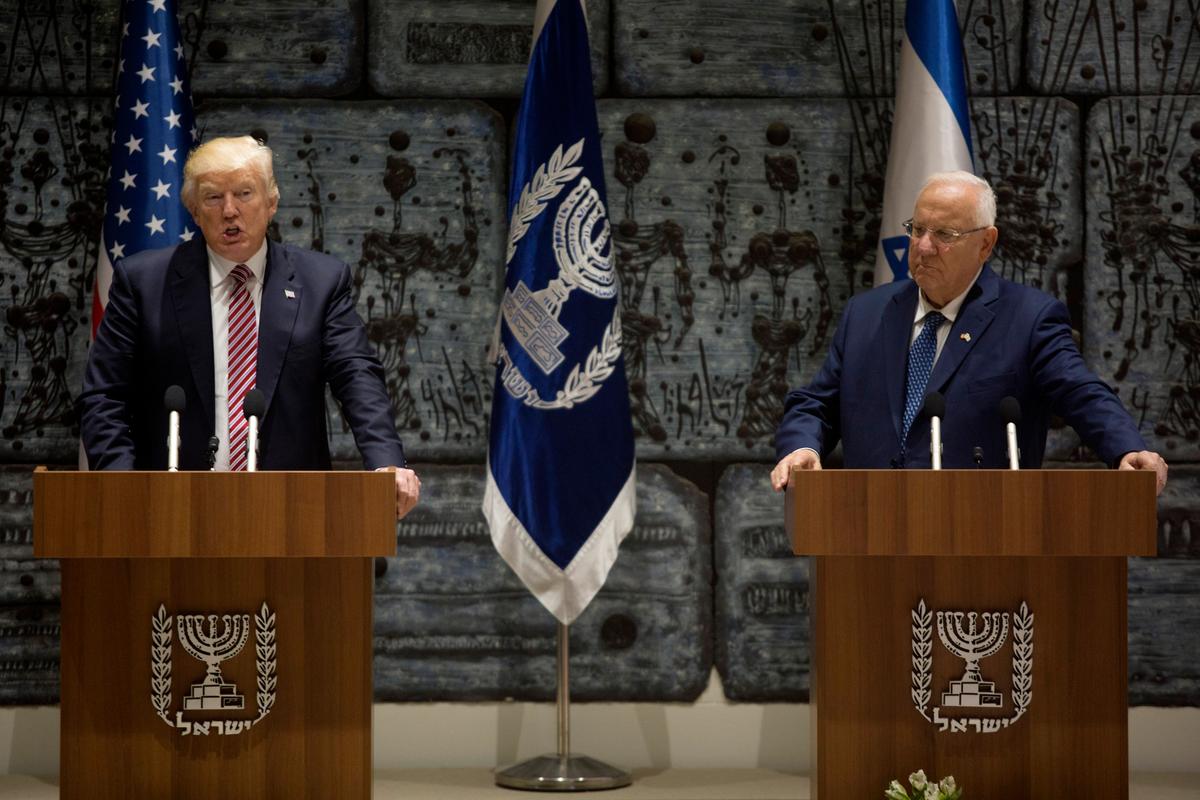JERUSALEM—President Donald Trump said on Monday that shared concern about Iran was bringing Israel and many Arab states closer and demanded that Tehran immediately cease military and financial backing of “terrorists and militias.”
In stressing threats from Iran, Trump echoed a theme laid out during weekend meetings in Saudi Arabia with Muslim leaders from around the world, many wary of the Islamic Republic’s growing regional influence and financial muscle.
Trump, who spoke after arriving in Israel on what is thought to be the first direct flight there from Saudi Arabia, has also vowed to do whatever is necessary to broker peace between Israel and the Palestinians. He has dubbed this “the ultimate deal” but in the run-up to his Holy Land visit, he gave little indication of how he could revive negotiations that collapsed in 2014.
He focused firmly on Iran in talks with Israeli leaders in Jerusalem on the first day of his two-day trip, pledging he would never let Tehran acquire nuclear arms and saying the deal struck with Tehran by the Obama administration needed fixing.
“What’s happened with Iran has brought many of the parts of the Middle East toward Israel,” Trump said in public remarks at a meeting with Israeli President Reuven Rivlin.





